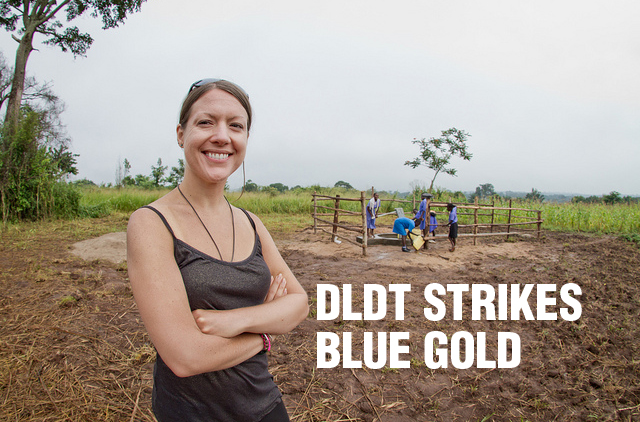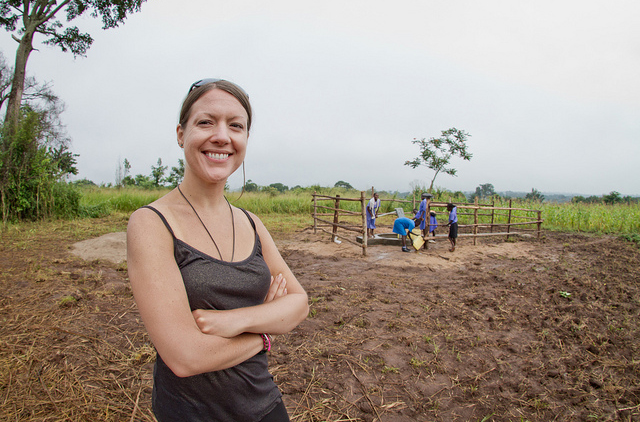Striking Water Gold


Drink Local Drink Tap (DLDT) has reason to celebrate. After 18 months of planning, the organization has completed its first water project overseas with documentary filmmakers in tow.
DLDT’s director Erin Huber, was overseeing the building of a water source on the grounds of St. Bonaventure Primary School in Mulajje, Uganda, which was funded by donors in the United States. The film follows her efforts to connect fellow Clevelanders to the water richness of the Great Lakes and to share their water wealth with those who lack one of the most basic needs of all human beings.
“Africa is a water-rich continent,” says Huber. “But the problem is access. Most places don’t have the money to dig wells or drill boreholes.”
After almost two years of planning and fundraising, the borehole at the Catholic primary school is now in use. It has not only cut down on the distance school children must travel to get water twice a day, but also has been tested and determined to be safe for consumption (something that isn’t guaranteed when the ground is tapped).
“We struck water gold,” Huber says. “The water is drinkable without boiling as long as the safe water chain is maintained.”
There are many ways for the water to become contaminated, but all are very preventable, says Irene Nakamatte, clerk for Wobulenzi town council and DLDT’s project manager, who spoke to a local committee in charge of the borehole’s maintenance.
First, she recommended weekly cleaning of jerry cans, the containers that are used to transport water. Most of the jerry cans are filthy inside and out, harboring mold and other bacteria.
Second, she stressed keeping the borehole free of food, such as mango pits and corn cobs, which children discard as they go about their day. “It attracts animals that will drink at the borehole,” she says.
Finally, Nakamatte told the school’s instructors to incorporate hygiene and sanitation education in the classroom to reinforce and sustain the new behaviors that will prevent illness. That means not drinking directly from the borehole, not washing at the borehole and not defecating near the borehole.
“Change is not going to happen overnight,” explains Huber. “I’ve seen how the borehole can be misused, but with proper training, these kids will be safe — at least from waterborne illnesses.”
Drink Local Drink Tap will continue to monitor the ongoing training in the coming months and years, but the completion of the borehole’s construction is cause for celebration.
“I know boreholes and wells are created everyday, but this was DLDT’s first,” says Huber. “But it hasn’t hit me yet since it won’t be done until we can share the full story with everyone who has been a part of the project. It’s not real until I can properly thank those people that donated time and money.”
The people of Mulajje have kind words of thanks for the funders, too. “We want to thank everyone in Cleveland for their support,” says Father Matthias Jjoga, the head priest of Mulajje parish. “We love them and we send our thanks home with you. We know how hard it was to make this happen.”
In the coming months, there will be opportunities to support the film’s completion and fundraising continues for future projects both in Cleveland and other places in need.
For more information, visit http://www.drinklocaldrinktap.org.

Comments